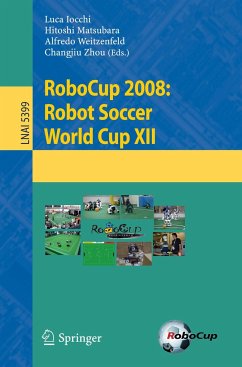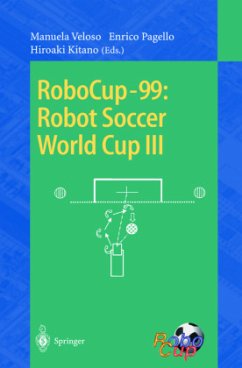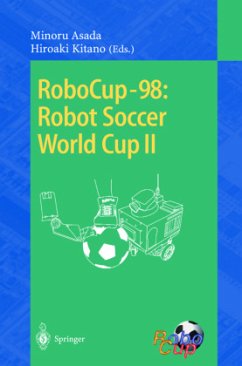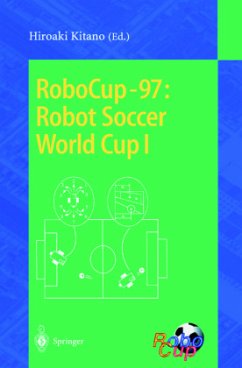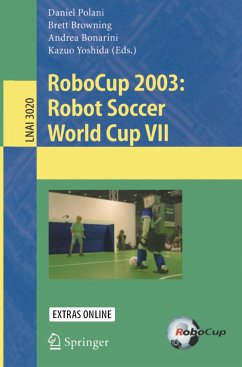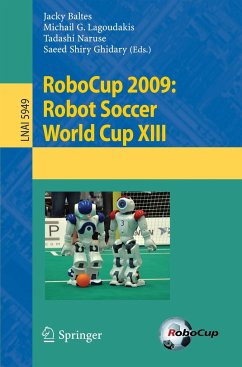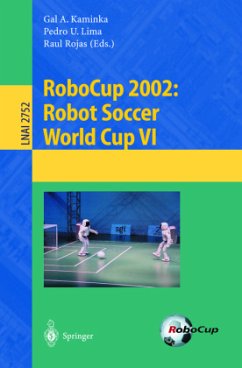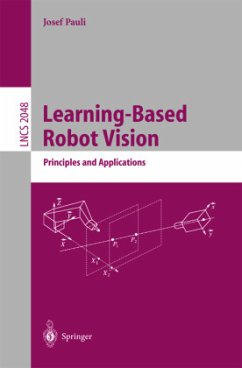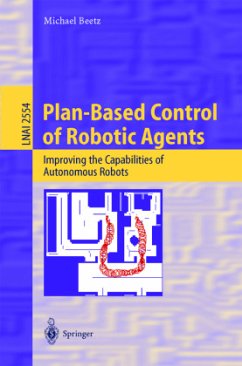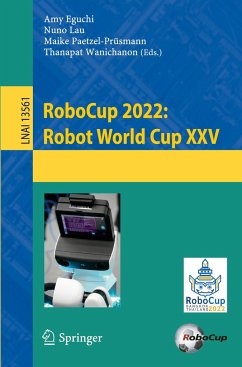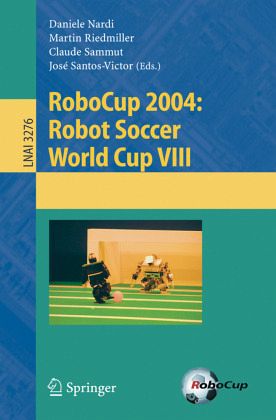
RoboCup 2004: Robot Soccer World Cup VIII

PAYBACK Punkte
39 °P sammeln!
ThesearetheproceedingsoftheRoboCup2004Symposium,heldattheInstituto Superior T´ ecnico, in Lisbon, Portugal in conjunction with the RoboCup c- petition. The papers presented here document the many innovations in robotics that result from RoboCup. A problem in any branch of science or engineering is how to devise tests that can provide objective comparisons between alt- native methods. In recent years, competitive engineering challenges have been established to motivate researchers to tackle di?cult problems while providing a framework for the comparison of results. RoboCup was one of the ?rst ...
ThesearetheproceedingsoftheRoboCup2004Symposium,heldattheInstituto Superior T´ ecnico, in Lisbon, Portugal in conjunction with the RoboCup c- petition. The papers presented here document the many innovations in robotics that result from RoboCup. A problem in any branch of science or engineering is how to devise tests that can provide objective comparisons between alt- native methods. In recent years, competitive engineering challenges have been established to motivate researchers to tackle di?cult problems while providing a framework for the comparison of results. RoboCup was one of the ?rst such competitions and has been a model for the organization of challenges foll- ing sound scienti?c principles. In addition to the competition, the associated symposium provides a forum for researchers to present refereed papers. But, for RoboCup, the symposium has the greater goal of encouraging the exchange of ideas between teams so that the competition, as a whole, progresses from year to year and strengthens its contribution to robotics. One hundred and eighteen papers were submitted to the Symposium. Each paper was reviewed by at least two international referees; 30 papers were - cepted for presentation at the Symposium as full papers and a further 38 were accepted for poster presentation. The quality of the Symposium could not be maintained without the support of the authors and the generous assistance of the referees.





